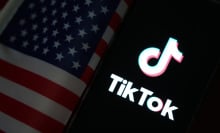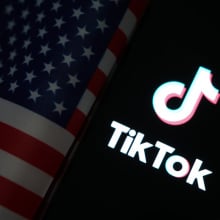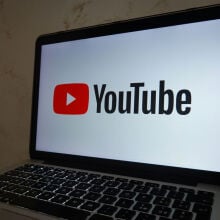Will Google be forced to break up? The search giant may have to if the U.S. Department of Justice has its way.
Over the summer, Google lost a big antitrust lawsuit from the U.S. Department of Justice that saw the judge overseeing the case, U.S. District Judge Amit Mehta, deem the search giant a "monopolist."
At the time, the judge did not rule on what would happen to Google as a result of the lawsuit. Google and the DOJ were asked to come up with solutions to remedy the company's antitrust issues.
This week, the DOJ submitted its proposals, with a key one calling for the separation of Google Chrome and Android.
DOJ wants to break up Google
"Plaintiffs are considering behavioral and structural remedies that would prevent Google from using products such as Chrome, Play, and Android to advantage Google search and Google search-related products and features—including emerging search access points and features, such as artificial intelligence—over rivals or new entrants," the DOJ wrote.
The DOJ filing then quotes the court's findings that Google's control of the Chrome browser with Google Search set as the default on Android devices “significantly narrows the available channels of distribution and thus disincentivizes the emergence of new competition.”
As can be seen from the filing, while the DOJ suggests splitting Chrome and Android, it also proposes other additional measures as well.
Potentially, the action with the most meaningful impact to Google would be the DOJ's suggestion limiting Google's agreements with third-parties regarding the search giant's default dominance. Apple, for example, has an agreement with Google to make Google Search the default search engine on iPhone's Safari web browser. In exchange, Google pays Apple a whopping $20 billion per year.
The DOJ says that Google should also provide its search engine "indexes, data, feeds, and models" to competitors through an API in order to ensure fair competition.
Additionally, the DOJ seeks to impose restrictions on how Google crawls third-party websites and uses their data for AI training and displaying third-party content in search results. Websites should be able to opt-out of this, the filing says.
The DOJ also takes on Google's advertising business and recommends that the company share more data with advertisers that offer them more control over where their ads appear. The DOJ also suggests that Google provides options to have ads run independent from its search engine product as well.
Google responds
Google has already hit back at the DOJ's proposals, with the company's Vice President of Regulatory Affairs Lee-Anne Mulholland penning a public response.
"DOJ’s radical and sweeping proposals risk hurting consumers, businesses, and developers," reads the title of Mulholland's post on Google's official blog.
Mulholland highlights the DOJ suggestion that would appear to have the most ramifications for users than Google the company itself.
"Forcing Google to share your search queries, clicks, and results with competitors risks your privacy and security," she writes, addressing the DOJ suggestion that Google share it's search data with competitors in order to level the playing field. "The search queries you share with Google are often sensitive and personal and are protected by Google's strict security standards; in the hands of a different company without strong security practices, bad actors could access them to identify you and your search history."
However, it should be noted that the DOJ addressed this concern in its filing. The DOJ said it's "mindful" of user privacy concerns and that those should be taken into account, but that private user data should be distinguished from data that just ensures Google maintains its market dominance.
Mulholland also addressed the main DOJ suggestion that Chrome and Android be split up, saying this would cause confusion and making things more difficult for users and third-party developers alike.
"Breaking them off would change their business models, raise the cost of devices, and undermine Android and Google Play in their robust competition with Apple’s iPhone and App Store," Mulholland writes. "In addition: Because Android and Chrome are used by so many developers and device makers across different industries — from cars to fitness devices to TVs to laptops to apps and more — changes could impact many businesses and the people who use their services."
As for the DOJ suggestions to put some limits on Google's use of AI, Mulholland echoed a familiar Silicon Valley stance when AI regulation is mentioned – that such rules would "hamper" innovation.
So, what should users expect? Nothing, for now. Google plans to take its arguments to court, and as with any legal battle, it should take a while before any concrete measures are made.




